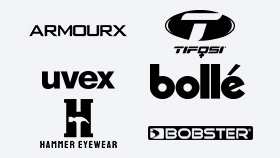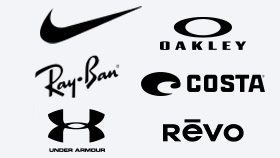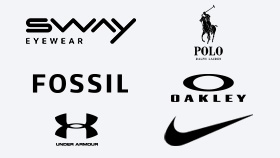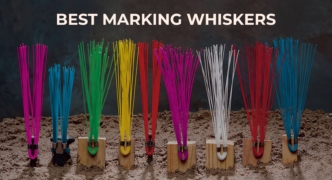
Are transition lenses a better choice? Let’s weigh the pros and cons of transition lenses vs prescription sunglasses.
Transition lenses, also called photochromic lenses, have been around for a while and offer unique advantages compared to traditional prescription sunglasses. These lenses darken on their own when exposed to strong sunlight and become lighter in conditions with mild or no sunlight, making them a versatile solution for those requiring vision correction. Say goodbye to the inconvenience of carrying separate prescription glasses and sunglasses.
Transition Lenses vs Prescription Sunglasses
Transition lenses offer full ultraviolet protection, making them an excellent choice for UV light safeguarding both indoors and outdoors. On the other hand, prescription sunglasses excel in glare reduction. So, prescription sunglasses are a better choice if you’re around water.
Remember that transition lenses may react unevenly in different temperatures, but their convenience and versatility make them a strong contender against prescription sunglasses.
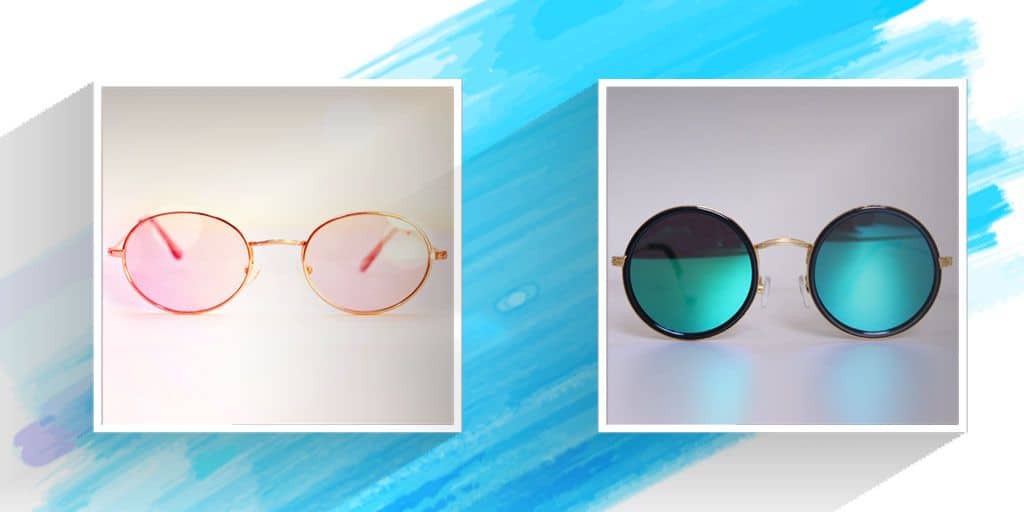
Pros of Transition Lenses
Convenience
Transition lenses are incredibly convenient. They adapt to changing light conditions so that you can wear them throughout the day and night. There’s no need to switch between prescription glasses and sunglasses.
Affordable
Investing in transition glasses is cost-effective. You save money compared to purchasing two pairs of glasses and don’t need additional prescription sunglasses.
UV Protection
Transition lenses offer UV protection, safeguarding your eyes from harmful UV rays. They filter out these rays while maintaining your clear vision. You can rely on them during outdoor activities without needing prescription sunglasses.
Two Pairs of Glasses in One
With transition lenses, you don’t have to worry about carrying two pairs of glasses. This reduces the chances of losing or misplacing one of them, which can be especially problematic with prescription sunglasses.
Cons of Transition Lenses
Not Ideal for All Scenarios
Transition lenses may not be the best choice for frequent drivers. They may not work effectively behind a car’s windshield, which darkens your view. For driving, consider XTRActive lenses, which can darken behind the windshield, providing the benefits of sunglasses without compromising safety.
Too Reactive in Winter
Transition lenses may take longer to adjust to changing lighting conditions in winter. They darken quickly but can be slower to return to their standard state. This issue is more pronounced in colder temperatures.
Limited Polarized Options
Most transition lenses don’t have polarized features, which are valuable for reducing glare. Polarized sunglasses are more effective at cutting down glares and protecting your eyes from UV-blue light reflections.
Prescription Sunglasses
Now it’s time for prescription sunglasses to reveal their pros and cons:
Pros of Prescription Sunglasses
Instant Use
Prescription sunglasses are ready for use when the sun is out without any delay. There’s no need to wait for them to adjust to lighting conditions.
Effective for Glare Reduction
Prescription sunglasses with polarized lenses are highly effective at reducing glare, making them suitable for various outdoor activities.
Cost-Effective as a Package
When purchased as a complete package, prescription sunglasses is more affordable than buying two separate pairs of glasses.
Cons of Prescription Sunglasses
Inconvenient Indoors
Prescription sunglasses, with permanently tinted lenses, can be inconvenient when you’re indoors. You’ll need to switch to regular glasses for indoor use.
Lack of UV Protection Indoors
While prescription sunglasses are great for clear vision outdoors, they don’t provide UV protection when you’re inside.
Both transition lenses and prescription sunglasses have their merits and drawbacks. The choice between them depends on your lifestyle and preferences. Consider factors like convenience, cost, UV protection, and glare reduction when making your decision. Ultimately, select eyewear that suits your needs and reflects your style. Your eyewear is a long-term investment, so choose fashionable and durable frames.
Transition Lenses vs. Sunglasses FAQs
How do transition glasses work?
Transition glasses use chloride and silver halide molecules for their unique function, offering a convenient solution for people who want to avoid carrying prescription glasses and sunglasses. When indoors, transition lenses look like regular, clear prescription eyeglasses. When exposed to sunlight, these molecules are activated, darkening the lenses within about 30 seconds and turning into sunglasses.
To better understand how transition lenses function, you can explore the details in this informative resource: How Do Transition Lenses Work?
What Are Transition Lenses Good for?
Transition lenses are glasses that stay clear indoors but automatically darken when exposed to sunlight. Their unique design can remove the need for sunglasses, making them a convenient choice for full-time glasses wearers.
Do Transition Glasses Offer UV Protection?
These glasses work both indoors and outdoors, providing ongoing UV protection. They eliminate the need to remember or wear separate sunglasses, reducing the chances of misplacing them.
What Colors of Transition Glasses Are Best?
For improved contrast in activities like golfing and fishing, choose transition brown. For the darkest transition lens, opt for transition gray.
When Should I Use Safety Sunglasses Instead of Transition Glasses?
You should use safety sunglasses instead of transition glasses when the primary concern is protection from impact, such as in industrial or construction environments. Safety sunglasses withstand high impact and comply with safety standards. Transition glasses are more suitable for everyday use and may not provide the same level of impact protection.



